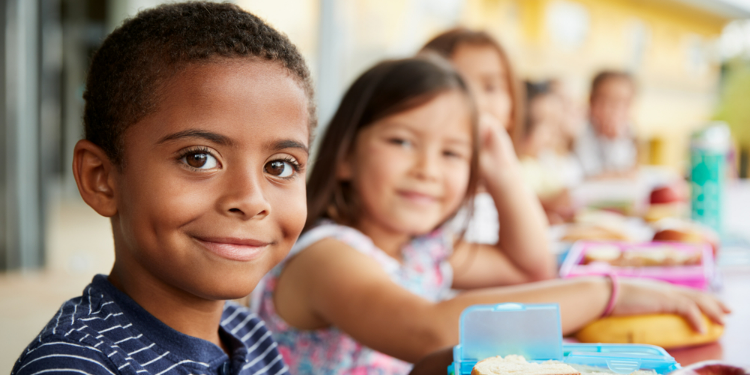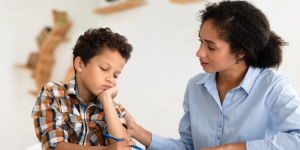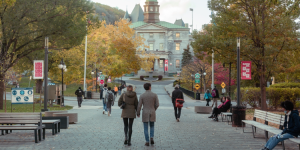
The Covid-19 pandemic shook the entire planet, and all spheres of economies and societies were impacted. The education sector hasn't been spared either, as children and parents both had to adapt to new teaching and learning methods.
In fact, parents and children were faced with distance learning overnight, which meant that homeschooling became the new norm for many. Weeks, months, and even years went by for some until children could go back to school and parents could get back to their routine. But how did expat kids and parents deal with the whole situation, and how was the transition from homeschooling to face-to-face classes?
Adaptation is the key
Chloé is a Belgian expat in Holland. During the first lockdown, her 7-year-old daughter was able to take distance learning classes, unlike her 4-year-old son at the time. "It was not easy to combine full-time work with children at home. For the first time, the school had to set up distance learning, but they were very organized. In Holland, children usually use computers in class, so there was nothing new to it."
During the second 4-week lockdown, Chloe dropped her children off with their grandparents in Belgium. This way, the parents had less stress and did not have to combine remote work with homeschooling. "The children still have distance learning from time to time, but it's not such a big deal. ig deal. The return to school was easy. The children were happy to go back. Of course, the masks were still mandatory in the corridors for the older children, and the parents were no longer allowed into the school premises, but we all adapted very quickly."
Florence has lived in Germany since 1988. She and her husband had a well-established routine where they would have breakfast together as a family before attending to their daily business. Florence worked from home while her children, aged 15 and 18, had exercises planned by the school. "There were a few distance learning classes but very few with students regularly missing, mine as well. Distance school was new as it was simply organized during the lockdown". This situation even led to many arguments and misunderstandings in Germany.
Florence, who is familiar with distance learning (since she teaches German and French online), saw "untrained teachers, confronted with unknown websites, and all this without any motivation on the part of the school managers. Some teachers were really involved, including those of my son, for example, but the learning phase was done at the same time as the teachers. Teachers and the students helped each other and moved forward at the same time, together." Regarding the return to school, Florence says: "My children were happy to get back to school and especially to see their friends in real life, those with whom they spent evenings, even nights on the chat. It was a seamless transition."
Marie F., an expat mum in Pondicherry, India, tells us about her experience during the extended lockdowns when schools were closed for a long period. In fact, school closures in India was among the longest in the world, according to UNESCO. "The kids haven't gone to school for almost two whole years", she says. Her family is used to living indoors during very hot periods of the year; nevertheless, they had to find their rhythm. Since her kids are enrolled in a French high school, the follow-up has been relatively easy from the beginning. As Marie is used to working from home, she found it quite easy to plan her days, alternating between helping with homework in the mornings, assisting her daughter in video classes, and finding activities to keep her busy."The first few months were more challenging because the parents were putting a lot of pressure on themselves regarding academic success and having to be a teacher in addition to their role as a parent."
Marie F. feels sorry for parents who speak little or no French and whose children attended the same school as her daughter. Finally, as the months went by, the pace became slower, and the schools reassured the parents that they would be able to catch up and receive the necessary support afterward. Marie F. tells us about a particularly successful activity that had been set up for her daughter, who is in grade two: "They had a challenge with a school in France, with physical exercises and fun activities.” Her daughter loved it, as did all her little friends in India and France.
Regarding the return to school, however, it seems to have been even more difficult than the adaptation to homeschooling. "A lot of fatigue, a complicated rhythm to resume, difficult schedules... The students and the teachers found it difficult to return to normal schooling after spending two years in distance learning mode". Marie F. mentions a partial resumption with half-days schooling so they wouldn't go too fast. "However, the children found it hard to concentrate and stay seated in class. As for the teachers, they said they had difficulty capturing their students' attention and that there was a risk that they would get bored in class. So it was a complicated return for children who were nevertheless happy to be with their friends and who had followed a distance learning program during the lockdowns". Still, she believes that the extended school closure in India was probably less destabilizing for her children than the "on and off" system that other children experienced in France.
Indian high schools have had more complex experiences with schooling. The resources did not allow for distance learning, with classes of generally around 50 to 100 students per class in the classroom. "Many schools could not set up a distance learning system because the families did not have computer equipment, and the schools did not have the resources to adapt to this new situation. Also, many children did not have any schooling during these 18 months or even 2 years of closure, depending on the region."
Complexities that called for a change in schooling and learning methods
Carina is Swiss German and has lived in France with her English husband since 2015. Their daughter was attending the village public primary school, a school that had hardly implemented any learning system during the first lockdown. Another difficulty was that the little support provided required the assistance of parents who spoke perfect French, which is not the case with their family, so they felt completely abandoned during this period. The return to school did not help her daughter, as she had to repeat her class. Chilled by a disorganized system and by so little individualized support, Carina and her husband decided to change their daughter's school and enrolled her in a private international one the following year. Distance learning was provided, and her daughter got genuine assistance. "She enjoyed every moment during this second phase at home, unlike the first time, and has an excellent memory of it. After the 2nd lockdown, she was very happy to see her friends and teachers again. She felt well integrated into the group, receiving real support even remotely. The warm welcome back to the playground positively impacted the children who lived through these two years marked by the pandemic.
N. is a French expat who lives in Mauritius with his wife, Aurélie. They were disappointed with the distance learning system set up by the elementary school their children were attending. Following the lockdowns and several months of almost non-existent distance learning (a few hours of online learning per week with the teacher and a few exercises and lessons for the week, supervised by parents only), they took a radical decision to withdraw the children from the costly private education system.
Today Aurélie takes care of the children's homeschooling through a French system distance learning organization. "In the beginning, we were lost, and I found it difficult to conciliate my roles as a teacher and mother during school hours. The kids also found it difficult to adapt, and they missed their friends very much. But, little by little, we found our place, and we organized ourselves so that the children could continue to have a social life, and so could we." Aurélie defined a new rhythm to work on concepts and follow the program.
"Although the beginning was difficult, we are finishing the school year. In addition to being very invested in their education, we also share many moments of bonding. We grow together and evolve at our own pace because there is no specific schedule. We chose this and have no regrets at all".
The success of homeschooling during those periods depended mainly on the strategies and programs set up by schools, but most parents, teachers, and children played an essential role in the adaptation.
Regarding the transition from homeschooling to school, schools and their actors had a prominent role in ensuring that normal schooling resumes in the smoothest way possible. Regardless of the good or poor organization, children did their best to pursue their learning, even when they were not surrounded by education professionals.



















